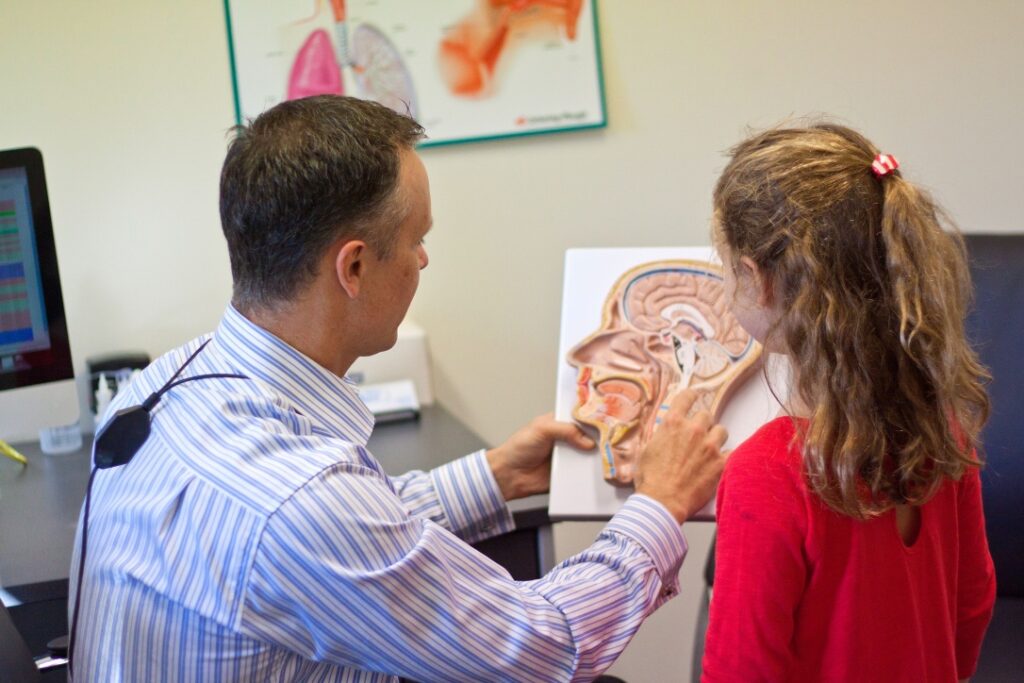Laryngology refers to diseases, disorders and injuries of the vocal region. Below are the most common that are referred to ENT specialists: these include voice disorders, gastroesophageal reflux disease, vocal cord medialisation and sleep and snoring disorders.
Voice Disorders

The causes of changes in the voice can range from simple laryngitis to complex cancerous conditions. There are a number of conditions both benign and malignant that are regularly diagnosed by ENT surgeons. A simple procedure involving a flexible camera placed in the nose allows the surgeon to see the voice box clearly. This is done in the rooms with a local anesthetic and is tolerated very well by most people. Children as young as 4 years old are often very tolerant of this procedure.
Many factors can lead to a voice disorder, such as aging alcohol use, allergies, gastroesophageal reflux disease, screaming, smoking, throat cancer, throat dehydration and voice misuse or overuse. A voice disorder is a change in how the voice sounds. Some of the diagnosed conditions can be simply observed, and treated with medications and dietary changes, while others can sometimes require surgical intervention.
Globus: Sticky mucus hanging at back of throat caused by drinking water late at night and after a cold.
Gastroesophageal Reflux Disease
Gastroesophageal reflux disease occurs when stomach acid continually moves back into the tube connecting your mouth and stomach. This condition is often treated by a gastroenterologist in most patients. But this condition can also cause a number of throat and voice issues.
Vocal Cord Medialisation
During this procedure, the paralyzed vocal fold is pushed to the middle allowing the functioning vocal fold to be as close as necessary for normal voice and swallowing. This is a procedure used to correct vocal fold Paralysis when permanent. vocal cord weakness or paralysis can occur on a temporary or permanent basis. Patients can experience swallowing problems as a result of paralysis.
Sleep and Snoring Disorders
Snoring disorders can show signs of sleep apnea in which breathing repeatedly stops and starts. Symptoms include snoring loudly and feeling tired even after a full night’s sleep. Additionally, snoring can in other circumstances be light and un-concerning, however, if it is a regular occurrence measures can be taken to improve your sleep. Procedures such as the base of tongue coblation can be performed to improve snoring in appropriate patients.
